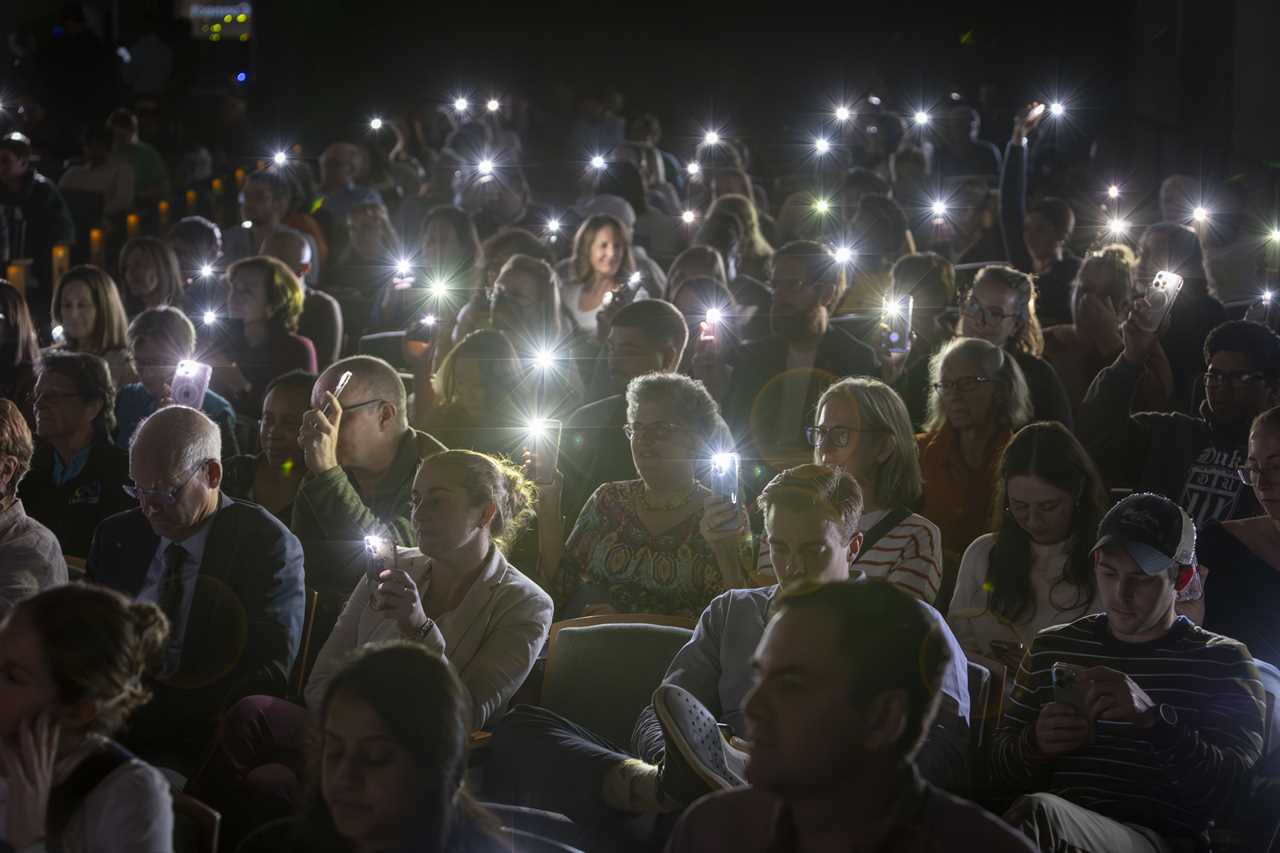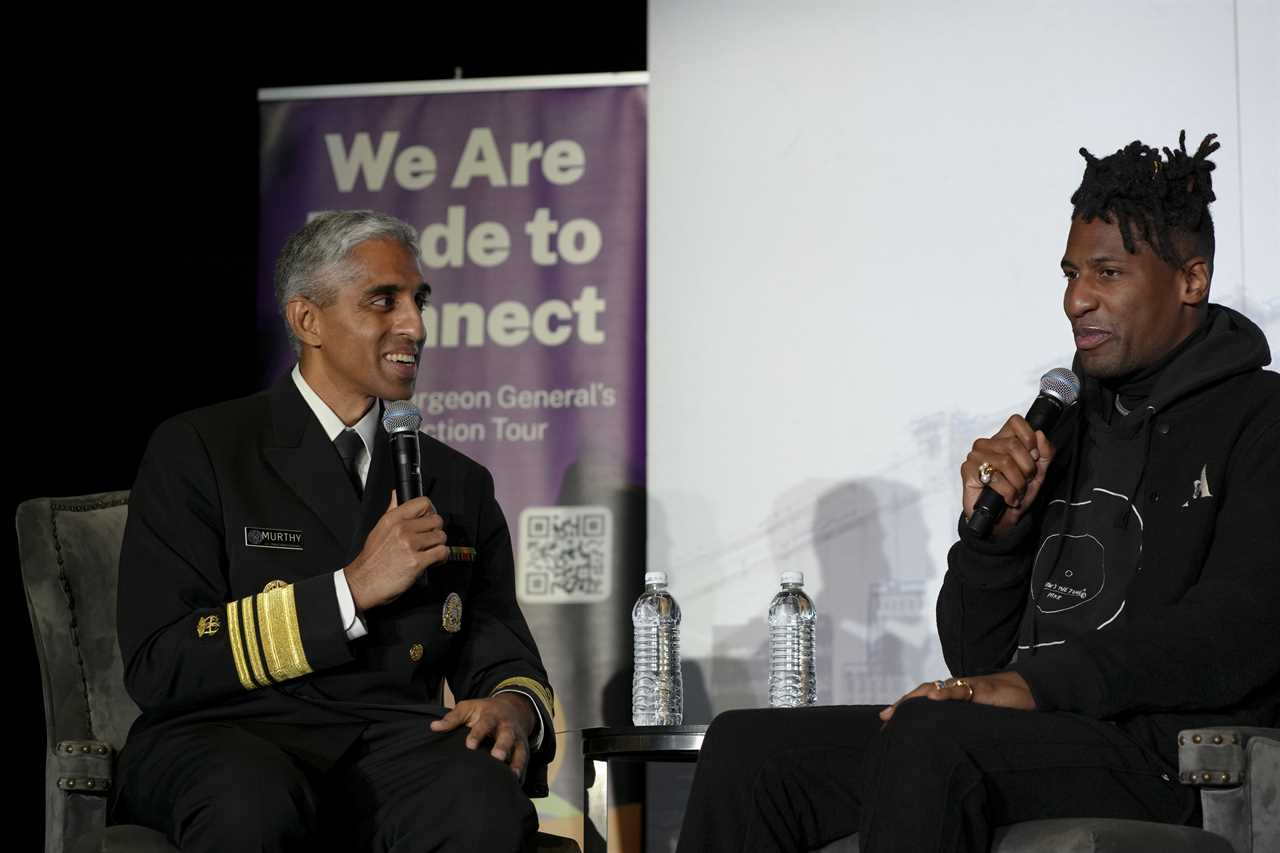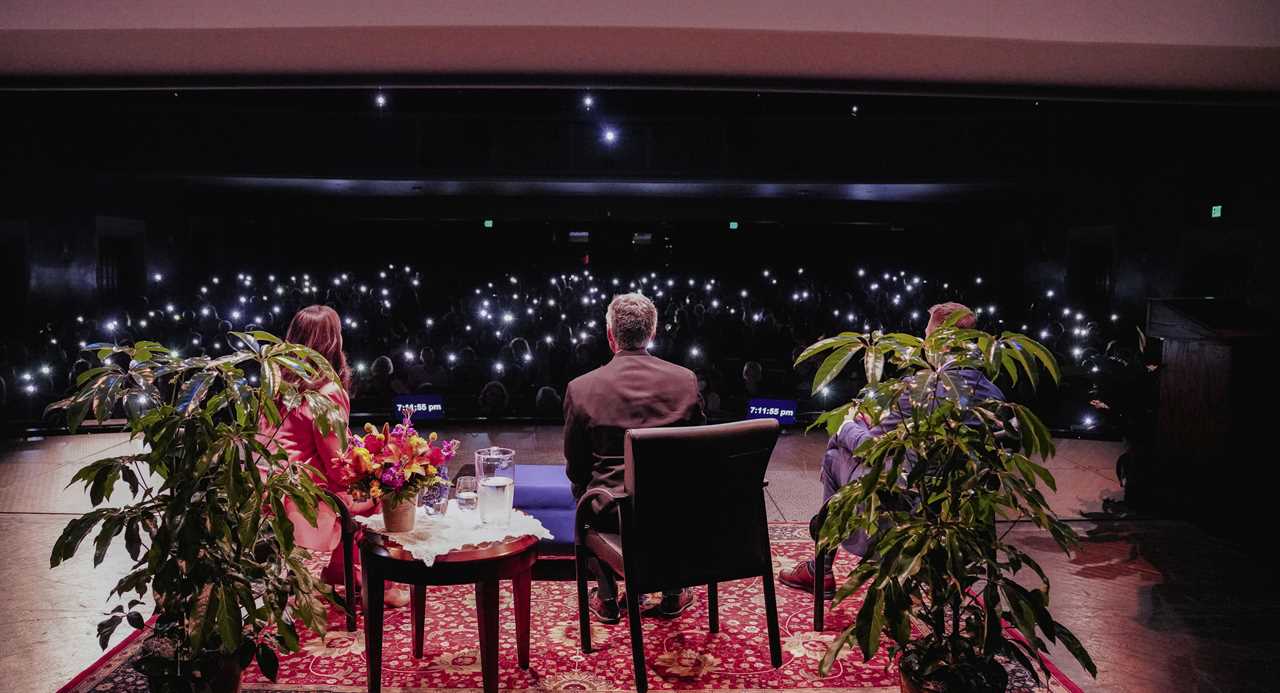
Surgeon General Vivek Murthy is worried about our sad social lives.
Americans are burned out, disconnected, isolated and starved for time. Maybe it’s post-pandemic blues. Maybe it’s our smartphone addiction. Whatever the cause, it’s serious enough that Murthy has issued a formal advisory to the nation calling for action to address this “epidemic.”
Such advisories are typically reserved for the biggest health problems, and some have changed the course of public health — a seminal 1964 report on cigarettes or the 1986 warning on AIDS. Murthy’s made it his mission to place loneliness in that pantheon, with a report citing a growing body of evidence linking loneliness and its cousin isolation to a greater risk of cardiovascular disease, dementia, stroke, depression and anxiety, as well as suicide. The health risks from loneliness are as dangerous as smoking up to 15 cigarettes a day, the report warned.
Murthy has also taken his message about the power of friendship on the road with a cross-country tour aimed at a group not often associated with social isolation: college students. In eight states, he has hosted a rollicking festival aimed at pumping up the undergrads, and some older folks, albeit without the kegs.
“This is really one of the defining issues of our time,” Murthy said at Brooklyn’s Barclays Center on a recent Monday evening, after dozens of New Yorkers in black puffer coats filtered into the stadium’s lobby, with armchairs and a piano nearby.
People dressed as dancing unicorns handed out prescriptions for five minutes of social connection. (Quantity: Endless. Refills: Daily.)
A drum beat sounded from the direction of the basketball court, and for a moment it seemed like the soft-spoken Murthy might have to compete with band practice. But before long, a drumline of bow-tied gentlemen appeared, threading through the folding chairs and revving up the crowd, who clapped along.
Eventually Murthy instructed the crowd to take out their phones. “We’re going to use technology for good here,” he said, tasking everyone with writing and sending a message to someone they’re grateful for in 45 seconds.
The lights dimmed.
Grammy-winning musician Jon Batiste, here to assist Murthy’s anti-loneliness campaign, tapped a few gentle notes on the piano, with Murthy still talking in the dark — slowly and softly, as if he’s winding down a yoga class.
As the lonely people and their allies hit send, they turn on their phone flashlights and wave them in the air.
“Imagine that you just dropped a pebble into a pond and there are ripples that are going to go out,” Murthy said. “Let’s do this for the next five days.”
Afterward, he sat down with POLITICO Magazine to discuss loneliness, going sugar-free and how technology doesn’t have to destroy human connection.
This interview has been edited for length and clarity.

At each stop on your college tour, you challenge students to take one action to forge connection — like expressing gratitude, offering support or asking for help — for five days. You’ve now invited the rest of the country to join in. What’s the story behind what you call the 5-for-5 challenge","link":{"target":"NEW","attributes":[],"url":"https://www.hhs.gov/surgeongeneral/priorities/connection/challenge/index.html","_id":"0000018c-7c96-dd03-a59e-7fbfae3a0000","_type":"33ac701a-72c1-316a-a3a5-13918cf384df"},"_id":"0000018c-7c96-dd03-a59e-7fbfae3a0001","_type":"02ec1f82-5e56-3b8c-af6e-6fc7c8772266"}">5-for-5 challenge?
We spent months trying to think of something that would be simple, impactful and would also be timed out so people wouldn't feel overwhelmed.
I love challenges. I love them because in my own life, they’ve made a difference.
I remember seeing an article in the paper about a sugar-free challenge. For a few weeks, people were going to eat food that had no added sugars. Part of the goal was just to increase your awareness about how many products you eat that have added sugar, like pasta sauce or bread. That was very powerful for me. I’m a believer that short experiences can sometimes open our eyes, by giving us an opportunity to go through something and learn something by experiencing what it’s actually like.
There’s only so much you can say in words. If I have the option of talking for half an hour or giving someone an experience, I’d give them an experience. That’s going to be more powerful.
I couldn’t help but notice that the challenge in New York involved technology, which I think of as contributing to loneliness and social isolation.
That’s very deliberate.
What we’ve heard from many students is that social media in its current form has ended up making many of them feel worse about themselves and about their friendships. We also know that during the height of the pandemic, being able to video conference with their friends was actually a blessing and a great way to stay in touch.
Part of the reason we have people use their phones to send that message is as a reminder: We can use our technology in positive ways to strengthen connection, but we have to be really intentional about it. If those can be bridges to offline connection, that’s even better. It’s not about tech being good or bad. It’s about how it’s designed and how we use it that ultimately determines whether it helps or hurts us.

By issuing a public health advisory on loneliness and by making it so central to your mission as surgeon general, do you think you’ve given policymakers permission to take the issue seriously?
I know you’ve covered the work Sen. Chris Murphy has done. Ten years ago, if you would imagine legislators talking about putting forward a measure to address loneliness, that would have perhaps not been seen as important or serious. More and more they understand that this is really foundational.
It reminds me a lot of my experience with the opioid epidemic when I was surgeon general the first time [under Barack Obama]. Back in 2014 and 2015, there was this interesting phenomenon where a lot of people were affected, but they thought they were the only ones because people weren’t talking about it. They thought this was something they should be able to control on their own with self-discipline. They didn’t think about it as a medical issue — much less a widespread medical issue that had huge implications.
Part of what we needed to do was pull back that curtain on addiction. Here, too, I think once people come to understand that loneliness is also common and consequential, it’s giving people the urgency, motivation and permission they need to pursue solutions.
Like the opioid epidemic, though, does it feel like you’re swimming against the tide? Loneliness has many causes and unclear remedies. Why should anyone really believe that they can make a difference?
I don’t feel like we’re swimming against the tide. In fact, in many ways I feel like we’re swimming with the tide.
But the magnitude of the problem is really big, which is why it’s so important to engage people with steps they can take in their day-to-day lives. When somebody goes through the connection exercise, they have tools that they can use. Those tools can be supplemented by investments in social infrastructure, which is where policymakers come in.
I actually feel quite encouraged. Sometimes people feel like, “Yes, I get that this is a problem, but unless somebody else invests billions of dollars, or passes major laws, nothing’s going to happen. In this case, it’s different. There are individual steps people can take — and because of that ripple effect, when each person here took an action, it affects somebody on the other side.
It’s one of the reasons we do that flashlight exercise. We want people to see how many rays of light go up. It’s one of my favorite moments, because we’re in this dark auditorium, we’ll see in some cases, hundreds of lights go on. People look around and they’re really struck by how many people did the exercise and how many ripples of connection just went out.
----------------------------------------
By: Erin Schumaker
Title: The 45-Second Tool to Change Your Life
Sourced From: www.politico.com/news/magazine/2023/12/18/surgeon-general-tools-loneliness-00131734
Published Date: Mon, 18 Dec 2023 05:00:00 EST
Did you miss our previous article...
https://consumernewsnetwork.com/politics-us/opinion-a-thirdparty-candidate-cant-win-in-2024






